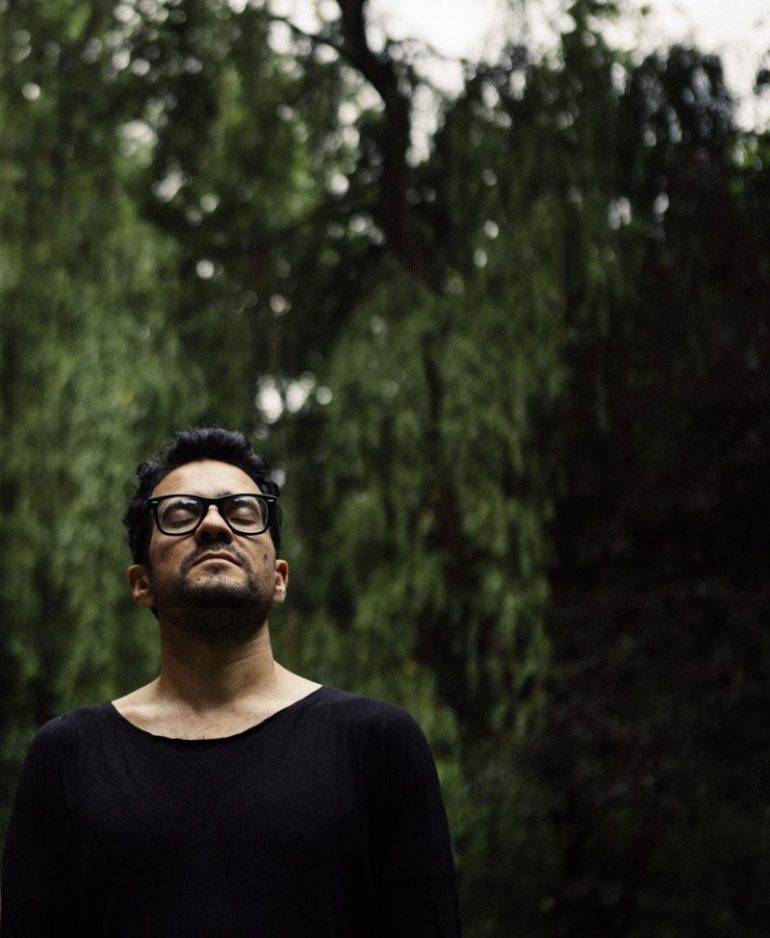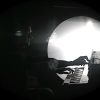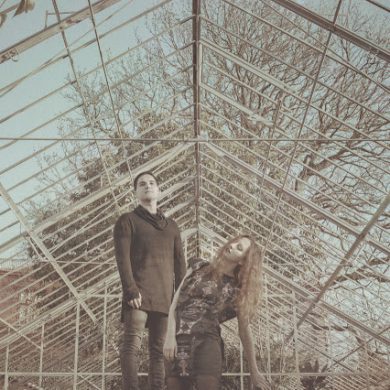From Angola, to Portugal and now living in London, Santiagø’s music is as eclectic as his origins. Having grown up on a diet of Afrobeat, Detroit techno, and later discovering the minimalist glitch of German techno, Santiagø uses modular synths to draw on his vast palate of sounds and influences to create something entirely his own.
Drawn to rich textures, syncopated grooves, and ambient explorations of shifting emotions and tonalities, Santiagø seeks to push the boundaries of improvisation in the world of electronic music, deep-diving into the unknown – each sound disappearing as quickly as it arrived…
His latest single ‘DECORATE’ is out now:
DECORATE is a single born entirely from the magic of modular synthesisers, and inspired by a city in lockdown; a London in the depths of quarantine. Recorded straight from the mix without any additional editing, this single is an ode to raw simplicity and the grinding power of pure voltage.
We are pleased to have engaged Santiagø in an interview to learn more about him, his art and his plans for the future.
If someone has never heard your music, which keywords would you personally use to describe your overall sound and style?
For someone that’s never heard my music I’d describe it as a journey into other worlds; a fusion between dub techno, experimental, ambient and deep electronic.
Tell us about yourself. How did you get into music?
I was raised on a diet of Afrobeat and later on Detroit Techno. My parents immigrated from Luanda to Porto and brought with them a record collection that reflected the kind of local music they were listening to in Angola. My earliest memories are of listening to their stash of vinyl or cassette tapes: Fela Kuti, James Brown, George Clinton, Stevie Wonder; and then Angolan natives such as Bonga, Os Kiezos, Jovens do Prenda, Mamukueno and Urbano Castro.
I also spun my first record at 14-years-old after I hassled a local club owner in Portugal to let me try and play a set. I’d become obsessed with digging around in record stores and wanted to play everything I was buying and see if I could mix a set that people liked. Because I was underage, the owner eventually gave me an early slot and of course made sure that nobody served me any drinks! At this point I was well into my love affair with techno and deep house, playing records like Derrick May, Jeff Mills, Juan Atkins, Carl Craig and Kevin Saunderson.
When you compose and produce tracks, do you make music for yourself or do you make it with others in mind?
I always begin a track with a feeling or mood; something that reflects where I’m personally at in the moment. But then the DJ part of my brain kicks in and I start to think about my audience and how I want them to move or respond to the track I’m making. My process is usually defined by this kind of oscillating between making for myself and making for the listener… And in a perfect scenario, the two come seamlessly together, and that’s when it’s electric.
What key pieces of gear/software are you using to define your sound?
In terms of hardware I work with Eurorack, and software is always Protools. Whilst I have my staple modules such as Monomes’ Teletype, Mannequins’ Just Friends, Bastl Instruments’ CV Trinity and Industrial Music Electronics’ Hertz Donut Mk2, there are others that I constantly trade – this is a big part of the modular world; swapping pieces in and out to change the overall sound of the whole piece. That’s what I love so much about modular, the way you’re constantly building, and then pulling apart, and then re-building again. The sound never gets old and the possibilities for inspiration and experimentation are endless.
Has your arsenal of equipment changed much since you first started?
When I first started making music, I was working digitally using a mixture of sample and live recordings in software like Logic and Ableton. But then I was introduced to the world of modules at Superbooth in Berlin and realised that this was the instrument that made the most sense to an analytical brain like mine. In a similar way to how I DJ only using vinyl, there’s something so appealingly tactile about having that hands-on analogue experience. But yes, to answer the question, my collection of modules is constantly rotating – it’s become a bit of an addiction!
Three favourite tracks of all time?
Probably the most impossible question to answer for anyone involved in music! I mean, the list is vast to say the least, but if I have to name a few then Asiko by Tony Allen (RIP), Sure Thing by Saint Germain, The Bells by Jeff Mills – I can’t even tell you how many times I played this track growing up; the version done with the Montpelier Philharmonic Orchestra is masterful. Right now I’m really loving Leafar Legov, MAP.ACHE, Nicolas Jaar, Mulatu Astatke and Hailu Mergia.
What inspires you outside of music?
Growing up in Portugal, if I wasn’t making music or in a club spinning records, I was down at some of the most amazing surf beaches catching waves. Competitive bodyboarding was big in my group of friends and I even managed to get a sponsor for a little while. Since living in London, I haven’t had the beach as much as I would’ve liked, so any chance I get I’m either off to Cornwall or Australia – or watching the WSL tour… Another favourite pastime is cooking and eating good vegan food!
What is the best or strangest reaction you’ve had to your music this far?
The best reactions I’ve had to my music is the different responses I get to each track; it’s so interesting for me to see which tracks people connect to – and so often everyone’s drawn to a completely different one. I feel like it reveals so much to me about the person who’s listening to it and what makes them tick. The best feedback I got recently was from a friend of mine – and I quote: “it has a slight 90’s dial up feel about it… like I need to put my seatbelt on in my Volvo.” I’m still trying to work out that last bit.
What, in your opinion, would be the perfect genre fusion?
For me, blending the percussive elements of Afrobeat with dub electronic techno is my idea of perfection. It’s what I strive to achieve.
Do you consider the Internet and social media as fundamental in building a career in music today, and what is your personal relationship with the new technology at hand?
Yes. It’s essential. Without an online presence your voice is going to be drowned out and forgotten. We’re all so used to connecting now via social media; it’s one of the primary ways we build relationships and community – so people crave this kind of link to their favorite artists, thinkers, writers, politicians etc. I like to approach it as though I’m creating a story for those who follow my music. It’s my job to entertain them and make the ride as enjoyable as possible. For me it’s also not about pandering to my own ego, but about being thankful to those who gift me their time and energy to listen to my music, follow what I post and read interviews like these. I’m also aware of having a civic responsibility though to be inclusive and mindful in the things I put out. The messaging of things is so important and those of us who have a platform, however big or small, have to be really conscious about the things we put out there.
What can we expect from you in the near future? Any upcoming projects or releases in the pipeline that you would like to tell us about?
I’ve got a number of releases in the pipeline that I’ll be putting out over the next few months. After ‘DECORATE’, I’ve got another single coming which is much more pumping and gritty – a track to lose yourself to on a darkened dancefloor somewhere; an ode to my days living in Berlin. I’ve also been collaborating with another artist and we’ve got three extended epics that we’re going to be releasing on vinyl sometime later this year.
Follow Santiagø:





